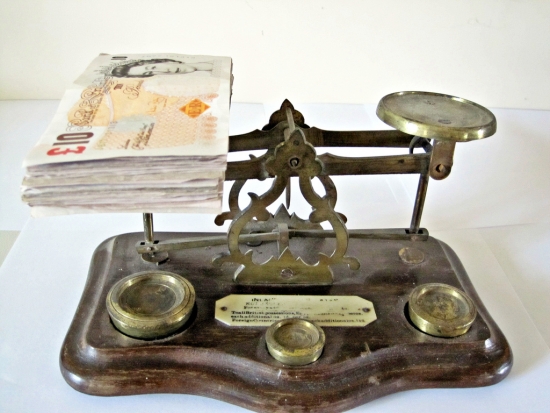The past year has not been easy for anyone. Rising food, fuel and utilities prices have caused further problems for families struggling to keep their households running, with luxuries like foreign holidays and new household items but a distant memory for many Brits.

Largely contributing to the nation’s woes is the combination of rising inflation and pay freezes, with studies showing that four in ten workers have not seen a pay increase this year. For the worst hit, this is the second or even third consecutive year where their pay has failed to keep pace with national inflation, meaning that many now have to rely on pay day loans or pawnbrokers in order to pay bills on time.
Pay experts XpertHR commissioned the study, which examined 1,314 annual pay deals completed within the past 12 months. These deals alone affected around 7.9 million employees.
According to XpertHR, 39.6 workers were given no choice but to accept a pay freeze in their annual payment settlement between the 1st September 2011 and 31st August 2012. Even those who did manage to wangle an increase from their employers would have been disappointed to see that this barely kept pace with base inflation, with the average basic pay award totalling only 2.5 per cent.
Una Farrell, of the Consumer Credit Counselling Service, says; “Yet another pay freeze means many families are now entering an ice age when it comes to their finances.
“The strain of having to pay for day to day essentials at 2012 prices, but with the same income as in 2008 or 2009, is going to shatter many household budgets.”
It is no surprise, then, that families are finding ever more creative ways of saving the pennies. As the Bank of England pointed out earlier this year, consumers are now “very much focused on finding value for money”, with discount shops and supermarket promotions becoming ever more popular as a means of stabilising a shaky budget.
The number of applicants for pay day loans has also risen sharply as a result of squeezed household finances, with website Wonga.com having paid out loans totalling over £2.4 million in 2011. According to the company, the average loan was for £255. Around a third of applicants had children, and were either married or lived with a long term partner.
Pay freezes are by no means a rarity in the current financial climate, with more than a third of workers receiving an annual pay reward of 0 per cent in 2009 and 2010. Many employers have no choice but to freeze the pay of their employees, as they wish to protect the long term interests of their businesses.
Sheila Attwood, speaking for XpertHR, warned that there appears to be no sign of pay freezes vanishing in the foreseeable future. She says; “At present, we see no evidence of a shift in the average pay settlement over the coming months.”
Unfortunately, research conducted by Incomes Data Services backs up Ms Attwood’s predictions, stating that pay deals are in fact getting worse as the recession progresses. Its study examined the pay deals of five million workers and appears to point towards problems for the future.
Incomes Data Services found that, in January, 55 per cent of participating pay deals were worth three per cent or higher, with only 18 per cent recorded worth four per cent or above.
Yet even these relatively low figures had dropped dramatically by April, with only 43 per cent of deals registered worth three per cent or more. Deals worth four per cent plus had halved to only 9 per cent.
It seems, then, that hard pressed families across Britain will have to further tighten their belts until the recession finally ends. But with electricity and gas bills expected to rise once more this winter, the question is now when, rather than if, workers begin to demand fairer pay deals.
Have you been affected by pay freezes either this year or at any point during the recession? Do you think pay day loans are a workable option for most families, or do you believe that risking further debt is a dangerous idea?
Previous Post
UK Properties Raising Capital with Retail Bonds